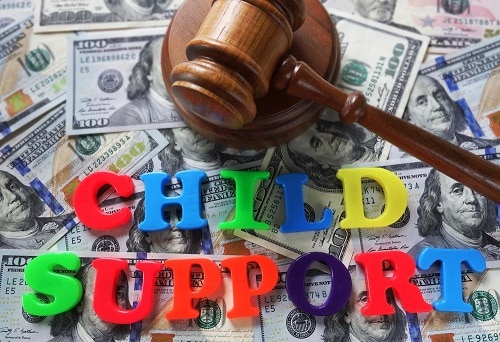Most people realize that child support and other domestic support orders such as spouse maintenance awards are legal obligations. Failure to make court-ordered child support payments or maintenance payments can have significant consequences—even jail time.
What some may not know (or know and don’t take seriously enough) is that making payments the wrong way can also get you in hot water.
Use of Child Support Payment Central (CSPC)
One of the most common ways Ohio child support payors create trouble for themselves is by circumventing the state disbursement system. The vast majority of Ohio child support payments are automatically deducted from the payor’s wages and forwarded to the CSPC by the employer. However, there are exceptions. For example, most self-employed parents are not subject to wage garnishment and must take responsibility for making child support payments.
Those payments must nonetheless be made through the CSPC, and that’s much more than a technical guideline. Under Ohio law, payments made directly to the custodial or recipient parent are considered gifts. Thus, a parent who opts to write a personal check to the child’s other parent or provide cash rather than going through the CSPC risks getting no credit at all for those child support payments. In other words, a parent who has made direct payments outside the system will be considered delinquent in his or her child support obligations.
Too often, noncustodial parents who have reason to want to make a direct payment convince themselves that it will all work out as long as they create a record—for example, have a canceled check or a receipt from the custodial parent. But, that generally won’t prevent the payment from being treated as a gift rather than being credited toward the child support obligation. Consult your attorney before making any deviation from the court-ordered payment system.
Other Types of Domestic Support
Spousal support (also known as “alimony” or “spousal maintenance”) is typically also paid through the Office of Child Support. However, the court may permit spousal support to be paid directly to the recipient. In making direct payments, it is important to create a record that will allow you to establish that maintenance payments have been made on schedule, and any missed payments have been made up.
Some tips for ensuring that support paid directly is properly credited include:
- Avoid paying in cash: not only is it more difficult to prove that you’ve made cash payments, but it is easier for one or both parties to become legitimately confused about what was paid when
- Understand how money orders work: many people assume that a money order is as good as a check for tracking purposes, but the process for proving that a money order was received and cashed is cumbersome and may take several weeks. If you do use money orders, be sure that you keep your receipts and clearly note which payment the money order covered, as well as when and how it was delivered.
- If you must pay cash, keep receipts: if you do make cash payments, maintain a careful record. Never send cash through the mail or drop it off in a mailbox. Hand the cash directly to the recipient, and get a detailed receipt. That means not just “Received $300 from John Smith,” but something more like, “Received $300 in cash from John Smith on June 2, 2019, for June 1-14 spousal maintenance.”
Whatever method you use, it’s to your advantage to keep an organized record. If you regularly pay your support through documentable means such as a check, you will likely be able to reconstruct the record if you must. But, there’s no good reason to create that stress for yourself and risk missing pieces when protecting yourself will take just a minute or two each time you make a payment? Recording the date you sent or delivered the payment, the form of the payment (cash, check, money order, etc), the amount, the check or money order number, and how it was delivered will make it quicker and easier to demonstrate that your payments are up to date if a dispute ever arises.
Understanding Your Rights and Obligations
Many people obligated to pay child support or spousal maintenance get into trouble because they didn’t fully understand the process, or didn’t recognize the importance of following court-ordered procedures and maintaining good records. Your divorce lawyer can help ensure that you have the information you need.
If you’re considering divorce or your spouse is filing for divorce, learn more about how an experienced divorce attorney can help protect your rights, your assets, and your relationship with your children. Just call 440-946-7656 or fill out our contact form.
The information presented in this post is not legal advice and does not form a lawyer/client relationship. Laws and circumstances can differ and change.
Please contact us for a personal review of your situation







